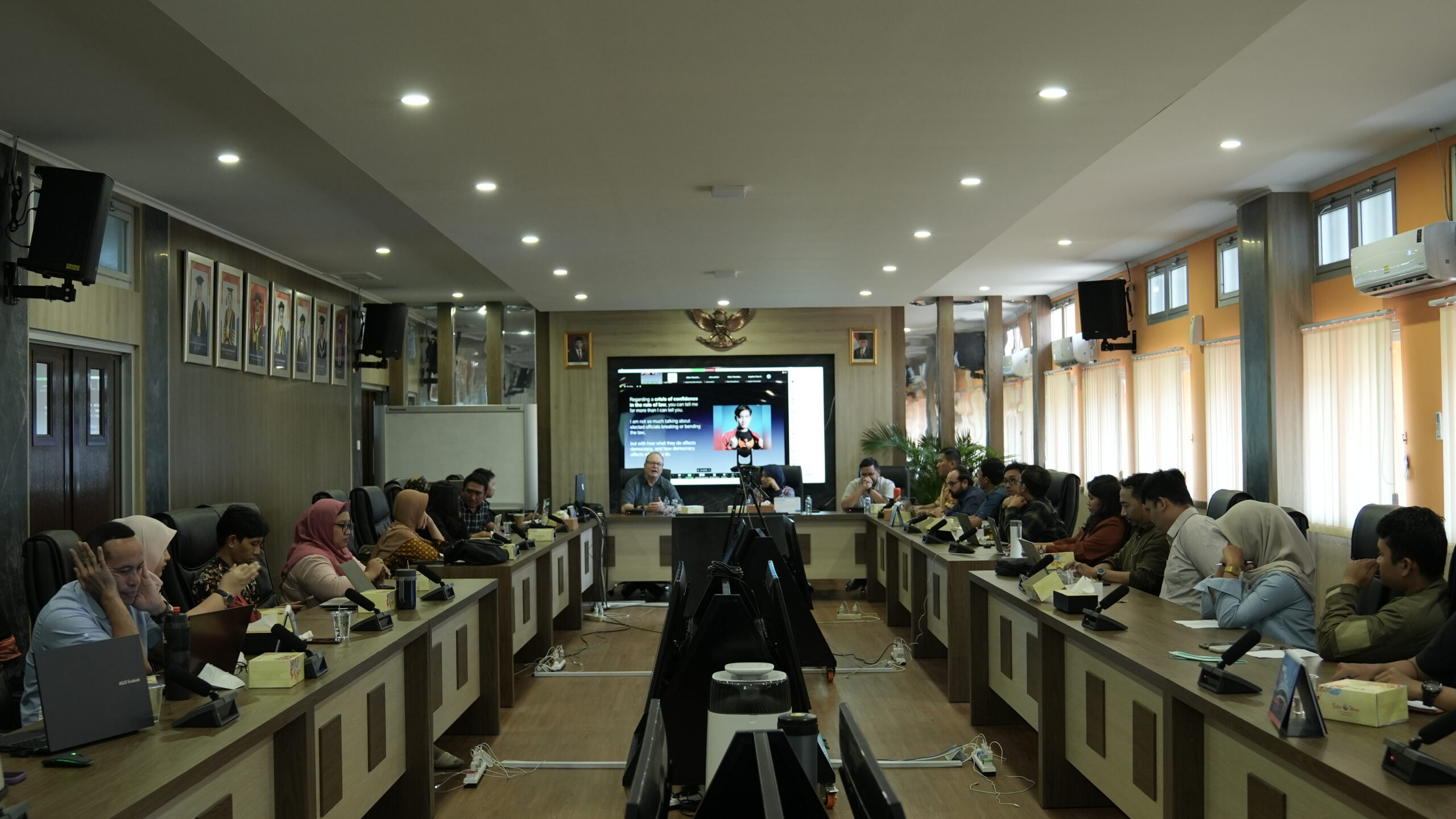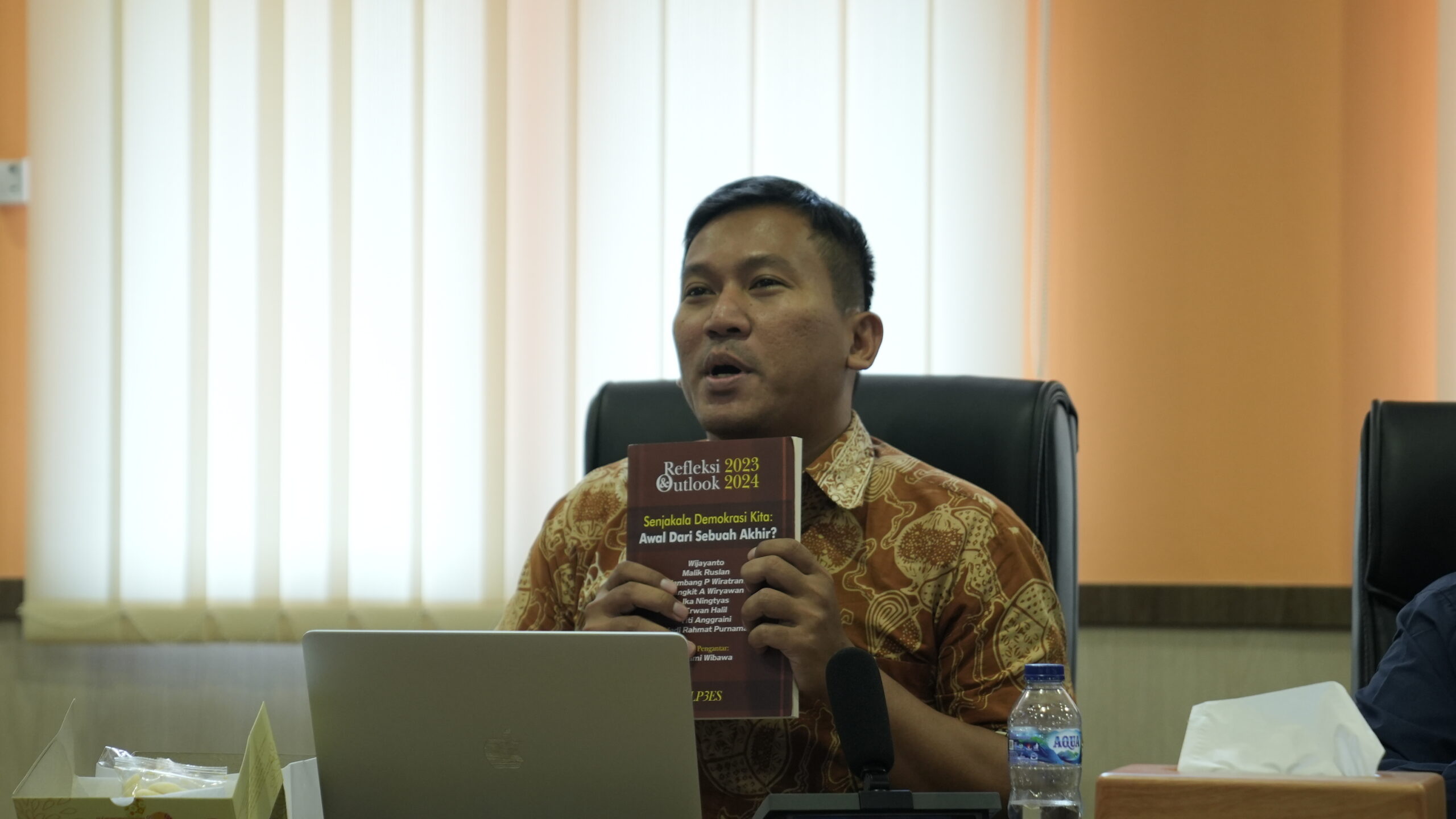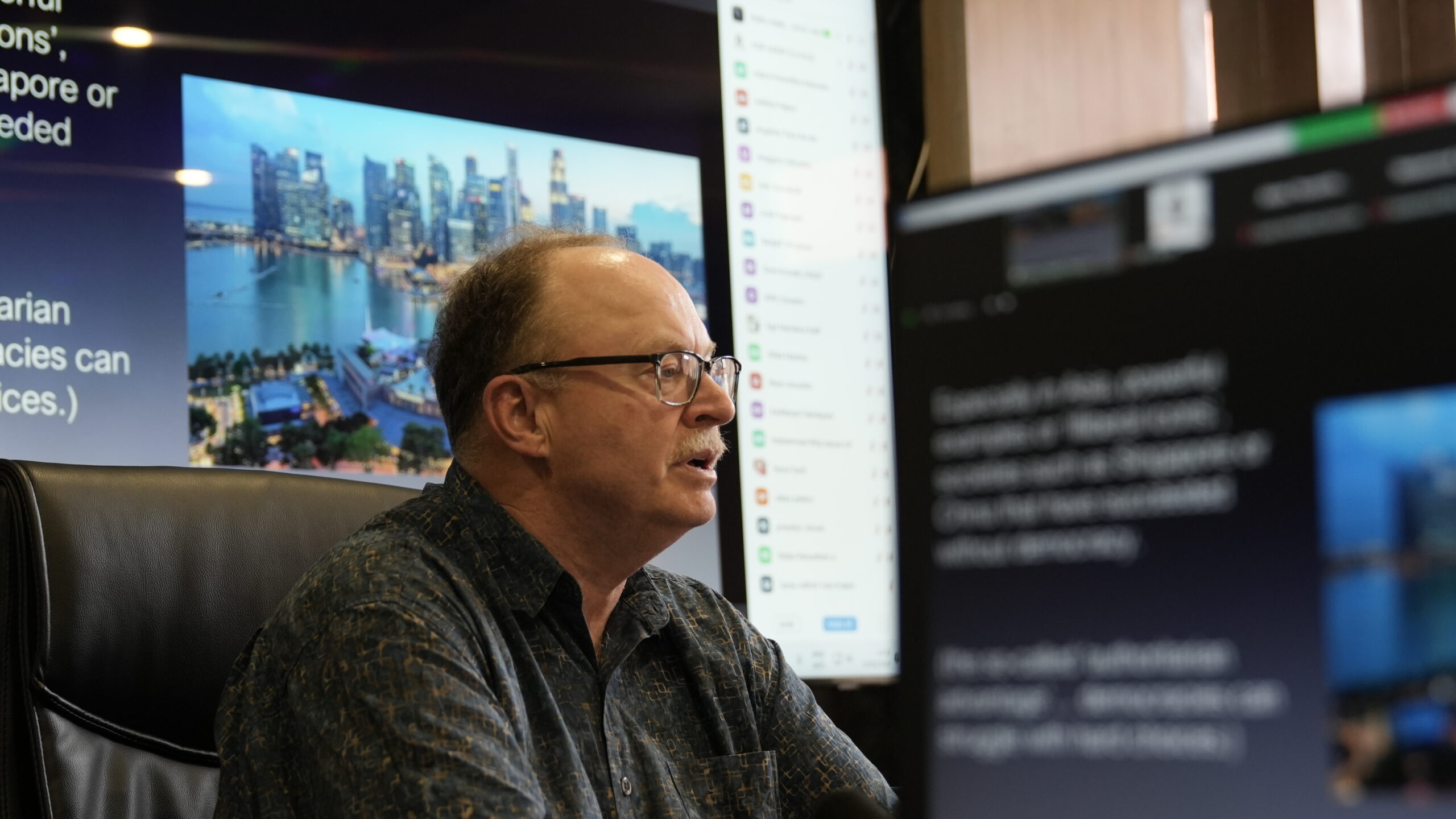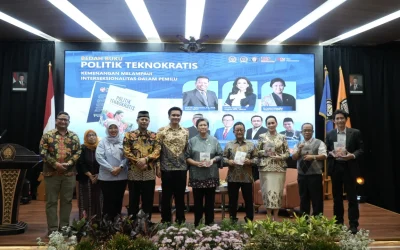Semarang (13/02) – In a highly anticipated international lecture held at the Faculty of Social and Political Sciences (FISIP) at Universitas Diponegoro (Undip), scholars and experts convened to delve into the intricate challenges faced by Indonesia in its ongoing democratization process. The event, moderated by Satria Aji Imawan, S.I.P., MPA, witnessed diverse discussions from distinguished speakers and discussants.
The event began with an opening speech by Dean of FISIP Undip Dr. Drs. Teguh Yuwono, M.Pol.Admin. Dr. Drs. Teguh Yuwono, M.Pol.Admin, emphasized the complexities of democratization in Indonesia, highlighting the pivotal role stability plays in fostering economic and educational advancements. Addressing an attentive audience, he remarked, “If your country is stable, you can make your economy better, and if your country is stable, you can make your education better – these are crucial factors to consider in elections and democratization’’ told him.

The keynote speech set the stage for Dr. Thomas Seitz from the University of Wyoming, USA, who identified three major challenges to Indonesia’s democratization – a crisis of confidence in the rule of law, A strong leadership movement, and the pervasive issue of money politics. Dr. Seitz underscored the need for a context-specific approach, cautioning against directly applying Western models to the Indonesian context.

Dr. Thomas also highlighted the evolving role of money in Indonesian elections is a subject of ongoing discussion. Meanwhile, the complexity of success teams has increased in tandem with each election, transforming into a network that keeps candidates connected with their constituents long after the polls. This success team could serve as a training ground for a burgeoning “political class.”
Following Dr. Seitz’s presentation, two discussants provided additional insights. Retna Hanani, S.Sos., MPP., shed light on the intriguing concept of Autocratic Legalism. This phenomenon involves charismatic leaders exploiting their electoral mandates to undermine constitutional systems through legal means. The consequences, she explained, include a decline in policy quality, reduced accountability, and instability in public administration practices.

The second discussant, Bangkit Aditya Wiryawan, S.Sos., M.A., Ph.D., brought attention to the alarming decline in democracy in Indonesia. He highlighted the growing use of misinformation by autocratic governments to influence public opinion, resulting in a deterioration of freedom of expression and media freedom. Wiryawan stressed the importance of civil society organizations as a bulwark against authoritarianism, calling for stronger initiatives to safeguard democratic principles.
As Indonesia navigates its democratization journey, these discussions contribute invaluable insights, guiding policymakers and scholars toward a nuanced understanding of the complex challenges. The role of stability, the impact of Autocratic Legalism, and the rise of misinformation are crucial factors that demand attention as the nation strives toward a robust and enduring democratic framework.




0 Comments